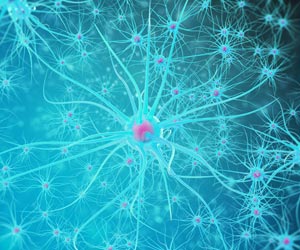Microglia respond differently in male and female brains, revealing sex-specific factors in Alzheimer's and Parkinson's.

The microglial response to inhibition of Colony-stimulating-factor-1 receptor by PLX3397 differs by sex in adult mice
Go to source). This group is known as microglia, the immune cells of the central nervous system. Microglia play a crucial role in supporting neuronal function by removing toxins from the brain and central nervous system. However, if they become overly active, they can end up harming neurons, and in some instances, have been linked to the progression of neurodegenerative diseases such as Alzheimer’s and Parkinson’s.
‘Did You Know?
Sixty percent of the human brain is made of fat, making it the fattiest organ in the human body. #medindia #brain #fat’





Sixty percent of the human brain is made of fat, making it the fattiest organ in the human body. #medindia #brain #fat’
The Need for Gender-Specific Research in Neuroscience
During development, there are known sex-related differences in how microglia function. But into adulthood, there was thought to be less variation in how they behave. New research from the Del Monte Institute for Neuroscience at the University of Rochester finds that microglia function may not be as similar across sex as once thought. This discovery could have broad implications for how diseases like Alzheimer's and Parkinson's are approached and studied, and points to the necessity of having gender specific research. It is already known that more women are diagnosed with Alzheimer’s and more men are diagnosed with Parkinson’s but it’s unclear as to why.Sex-Specific Differences in Microglial Response
“It is a fortuitous finding that has repercussions for what people are doing in the field, but also helps us understand microglia biology in a way that people may not have been expecting,” said Ania Majewska, Ph.D., professor of Neuroscience and the senior author of a study out today in Cell Reports that shows how microglia respond differently in adult male versus female mice when given an enzyme inhibitor to block its microglia survival receptor. “This research has a lot of ramifications for microglia biology and as a result all these diseases where microglia are important in a sex specific manner.”Studying Brain Health and Disease by Targeting Microglia
Pexidartinib or PLX3397 is an enzyme inhibitor commonly used to remove microglia in the lab setting to help researchers better understand the role of these cells in brain health, function, and disease. PLX3397 is also used to treat the rare disease tenosynovial giant cells tumors (TGCT) a condition that causes benign tumors to grow rapidly in the joints.Researchers in the Majewska Lab were using PLX3397 in male versus female experiments but continued to run into difficulties, so they decided to take a different approach with the inhibitor. Instead of using it to ask other questions, they decided to better understand how microglia were responding to the drug in males versus females. Linh Le, Ph.D., currently a Research Scientist, found the expected response from microglia to PLX3397 in male mice—it blocked the receptor that signals microglial survival and depleted the microglia. However, Le, et al., were surprised to find that female microglia responded with a different signaling strategy that resulted in increased microglial survival and less depletion.
Understanding Microglia Function Across Different Conditions
“These findings are crucial in the rapidly emerging field of developing disease-modifying therapies that target microglia,” said Majewska. “We do not yet know why the microglia are acting differently in the two sexes. I think we'd like to understand how the signaling through this receptor is regulated in different conditions, i.e. hormonal changes, basal state, inflammatory, or an anti-inflammatory state.”Reference:
- The microglial response to inhibition of Colony-stimulating-factor-1 receptor by PLX3397 differs by sex in adult mice - (https://www.cell.com/cell-reports/fulltext/S2211-1247(24)01527-4)
Source-Eurekalert














